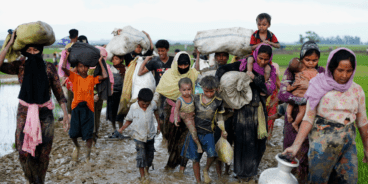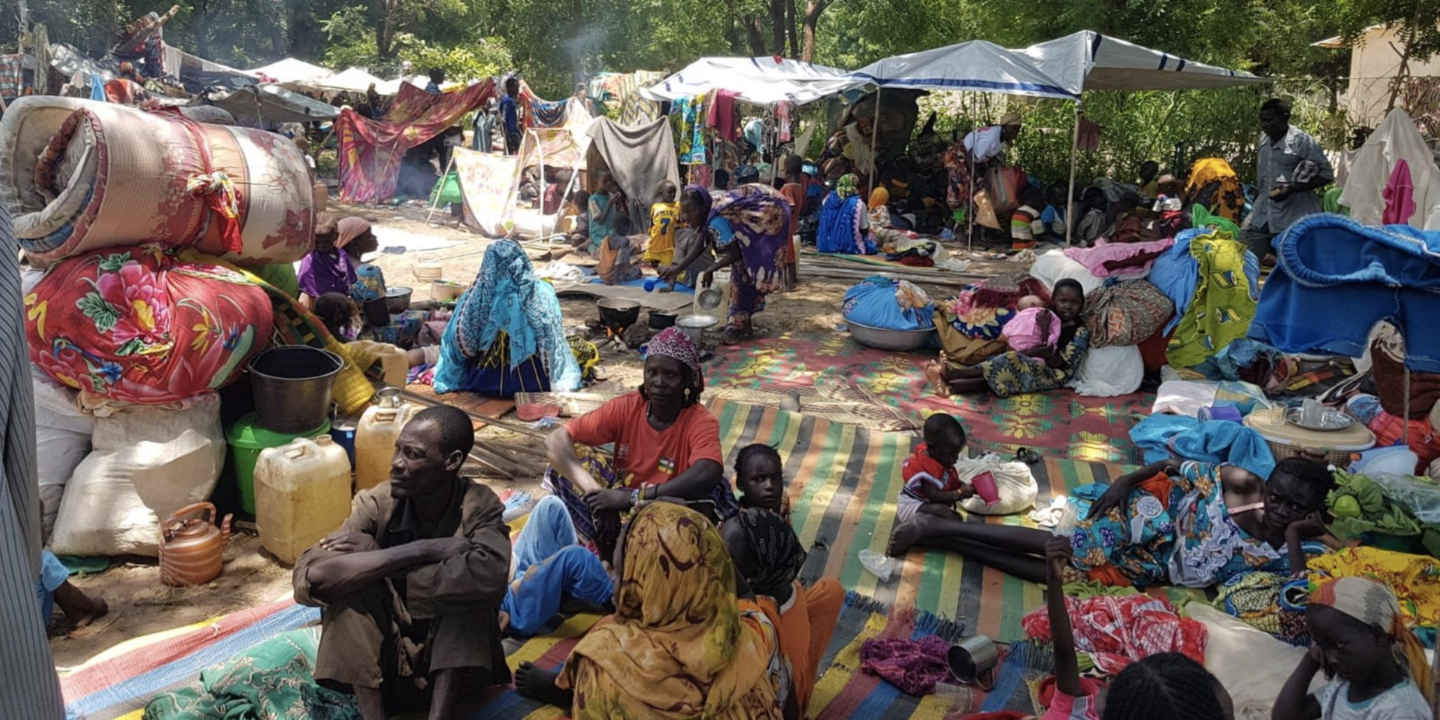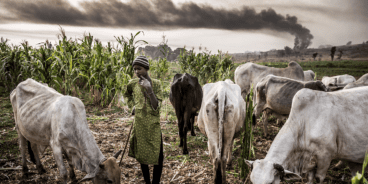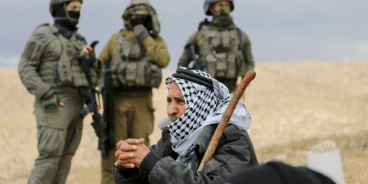

Atrocity Alert No. 172: Nigeria, Myanmar (Burma) and Central African Republic
Atrocity Alert is a weekly publication by the Global Centre for the Responsibility to Protect highlighting situations where populations are at risk of, or are enduring, mass atrocity crimes.
22,000 missing people in Nigeria as a result of conflict
On 12 September the International Committee of the Red Cross (ICRC) reported that nearly 22,000 people have been reported missing over the past ten years as a result of conflict in Nigeria. Nearly 60 percent were minors at the time they went missing. This is the highest number of missing persons registered by the ICRC in any country. Peter Maurer, President of ICRC, said that “families are the greatest casualty of 10 years of war in northeast Nigeria.”
The greatest threat to civilians in northeastern Nigeria has been the armed extremist group Boko Haram. Since 2009 Boko Haram’s deadly insurgency has resulted in two million people fleeing their homes and tens of thousands being killed. Boko Haram – who are committed to establishing an Islamic state in northern Nigeria – has regularly attacked both civilian and military targets, deliberately abducted thousands of civilians, and targeted and bombed churches, mosques and schools. Despite the Nigerian government making significant progress against the group since the peak of its power in 2015, Boko Haram has recently intensified its attacks on the security forces.
In their fight against Boko Haram Nigerian security forces have often been accused of human rights violations. On 10 September Human Rights Watch reported that the Nigerian military arrested and detained at least 3,600 children for suspected involvement with Boko Haram between January 2013 and March 2019.
The Special Rapporteur on extrajudicial, summary or arbitrary executions concluded a visit to Nigeria on 3 September and reported that the “extent and level of arbitrary deprivation of life in the northeast, including arbitrary killings by security forces, appears to have gone down since 2016.” However, the Nigerian authorities have consistently denied the UN access to military detention facilities.
The Nigerian government should continue to support programs that strengthen local security, counter violent extremism, and bolster the rule of law in northeast Nigeria. Such efforts should address comprehensive security sector reform, including by incorporating international humanitarian and human rights law into all military and police training. All children who are in detention facilities and have not been charged with a criminal offense should be immediately released.
UN Fact-Finding Mission says ‘threat of genocide’ continues in Myanmar
On 16 September the UN Human Rights Council-mandated Independent International Fact-Finding Mission on Myanmar (FFM) published its final report, concluding that “the State of Myanmar breached its obligation not to commit genocide.” Since August 2017 more than 745,000 ethnic Rohingya civilians have been forcibly displaced from Myanmar, with nearly 400 Rohingya villages attacked and burned.
The FFM found that Myanmar’s armed forces – the Tatmadaw – and associated entities engaged in genocidal acts targeting the Rohingya. More than two years later, utilizing the Framework of Analysis for Atrocity Crimes of the UN Office on Genocide Prevention and the Responsibility to Protect, the FFM determined that all the risk factors for genocide and other atrocity crimes remain present in Myanmar.
The FFM welcomed efforts to ensure accountability undertaken by UN member states, such as The Gambia who have announced their intention to pursue a case against Myanmar at the International Court of Justice (ICJ). The Global Justice Center and the Global Centre for the Responsibility to Protect met with Attorney General and Minister of Justice, Abubaccar M. Tambadou, and other senior officials in The Gambia earlier this month to discuss international efforts to hold Myanmar accountable under the Genocide Convention.
The international community must act now to protect those Rohingya who remain inside Myanmar from the ongoing threat posed by Myanmar’s security forces. All parties to the Genocide Convention should support the government of The Gambia and help pursue a case against Myanmar at the ICJ. Meanwhile the UN Security Council (UNSC) should refer the situation in Myanmar to the International Criminal Court or create an ad-hoc tribunal to investigate and prosecute individuals responsible for genocide and other atrocities in Myanmar. The UNSC should also impose an arms embargo on Myanmar and targeted sanctions on all senior military officials implicated in genocide.
Renewed fighting endangers fragile peace process in CAR
Since 1 September clashes between rival armed groups in Birao, in the northeast of Central African Republic (CAR), have forced an estimated 13,000 civilians to flee their homes, with many seeking refuge near a local base of the UN Mission in CAR (MINUSCA). The latest violence erupted six months after the signing of a historic peace deal between the government and 14 armed groups. In a joint statement the African Union, Economic Community of Central African States and MINUSCA called the latest violence “a flagrant violation” of the peace agreement. MINUSCA immediately deployed peacekeepers to Birao to “ensure the protection of civilians.”
The recent fighting between armed groups vying for territory and power highlights the enduring instability across CAR. In her most recent report, the Independent Expert on the situation of human rights in the CAR, Marie-Thérèse Keita-Bocoum, warned that while overall violence has significantly decreased since the peace agreement, some violations of international humanitarian and human rights law continue to take place with impunity. These include conflict-related sexual violence, attacks against humanitarian workers, arbitrary executions and recruitment of child soldiers. The report alleges that most violations committed since February have been committed by signatories to the peace agreement.
Last Friday, 12 September, the UN Security Council (UNSC) adopted a resolution that eases the arms embargo on CAR. The modifications are aimed at ensuring greater training and equipment for the security forces, allowing the Central African authorities “to be able to respond proportionately to threats to the security of all citizens.”
Illegal arms proliferation and ongoing fighting between predatory armed groups poses a serious threat to the sustainability of the peace process. All signatories to the peace deal in Central African Republic must comply with their obligations under International Humanitarian Law and commit to the full implementation of the February agreement. The UNSC, together with the African Union, should impose targeted sanctions on any individuals or groups that breach its key provisions.
Read Next

Related Publications

Atrocity Alert No. 444: Nigeria, Haiti and South Sudan

